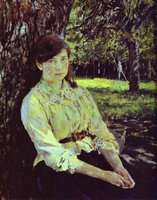Ukrainian Genocide
The Internernational Herald Tribune reports on Ukraine commemoriating the Great Famine (1932-33) as a result of Stalin's collectivization and terror. In the last few weeks, Ukrainian President Victor Yushchenko has been terming these actions "crimes against humanity" (I had read the word 'genocide' elsewhere). The article presents some background as well as how this tragic past fits into national identity.
On the flip side, I really have very little patience for Stalinophilia.
The Adventuress writes on the type of protests occuring in Kiev, Politics and Religion talks about the Terror in practical terms
Update: then-New York Times reporter Walter Duranty, infamous for his deceptive reporting on the famine, still retains his 1932 Pulitzer Prize:
On Friday, the Pulitzer Prize Board said it would not revoke a prize awarded in 1932 to Walter Duranty, a reporter for The New York Times who was accused of ignoring the famine in Ukraine to preserve his access to Stalin. The board said there was not clear evidence of deliberate deception (here).
Why am I not surprised.
An old post from Catallarchy or Duranty (for background/specifics).



